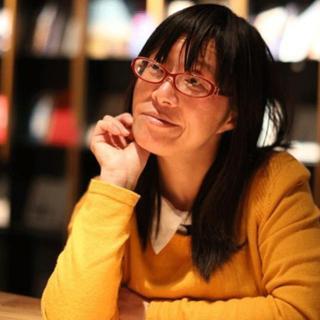
介绍:
American author Washington Irving once said: "Little minds are tamed and subdued by misfortune; but great minds rise above them."
In that case, Yu Xiuhua, a Chinese female farmer suffering from cerebral palsy, is undoubtedly a giant in her own right.
In 1976, Yu Xinhua was born to a rural family of central China's Hubei Province. A lack of oxygen during her delivery has left her with permanent brain damage and movement disorder. With the help of her parents, she gradually learnt how to stand and walk, yet the sense of solitude and alienation still haunted young Xiuhua. Until in high school, she finally found peace and solace in poetry, which has become her crutch, something she always turns to "when faltering in this reeling world".
"I am not using this walking stick all the time. I think poetry is more like a spiritual crutch. When you are ignorant of the world, when no one could help you, the only thing you could do is to hold on to your poem. Although they can't really change your life or state of mind, at least, they ease you. Through poems, you will find your position in the world. No matter how emotionally-intense or sorrowful the poetry is, its nature is quiet and tranquil. "
Yu Xiuhua dropped out of high school a year before her graduation. At the age of 19, she got married to a man she "didn't choose out of love". Seldom talking with each other and sharing nothing in common, they soon separated. The husband left her and their young son in the village and only came back home occasionally. The frustration, regret, and pain Yu Xinhua has experienced in her own wedlock prompted her put pen to paper. This experience is faithfully documented in her collection, The Moonlight Rests on My Left Hand, or in Chinese, "Yue Guang Luo Zai Zuo Shou Shang".
Here is an excerpt of Yu's poems, You Didn't See the Part of Me being Covered.
In spring, I lift flower, fire and the canopy of tree on the cliff,
Yet the lonesome call still echoes in the rain,
Thumping as a blunt tool onto the evening clouds.
Too late to love, I've already fallen for you.
I bite your name upon my lips until they bleed,
But still, I fail to break the dark seal.
Only the easy parts could make me stay:
Canna, black butterfly, and the reflection in the water.
I say to them, hello,
Please accept my humble love as if I make a bow.
But I have never been perplexed,
Never, just like a river,
Which knows the direction of tomorrow even in the darkest night.
But in the end I can't forgive myself
For keeping you so intact.
It's better for you not knowing all those illusions.
How many dusts in this world you will need,
To cover a woman's love,
That is bloody yet glittering.
This part-time poet, full-time farmer states her understanding of love.
"I think what I have done, my bearings, and my expressions are merely false appearances. Men cannot see the real me. They are incapable to do that; at the same time, they are unwilling to do so. So in that sense, love is pathetic. Even in love, people don't really understand what attracts them to each other. But through my poetries, I want to turn this wretchedness of love into joy and happiness, even transform it into hope. It's an accumulating process. I can't stop trying even though I already know the results. "
Remaining obscure for nearly two decades, in 2015, Yu Xiuhua was suddenly put under the spotlight. Her audacious, striking yet heart-felt piece, Cross Half of China to Sleep with You, became viral online, even inspiring some musicians.
Brimming with rich imaginary, realistic touch and vibrant vitality, Yu Xiuhua's poems are neither angry nor hysterical. Instead, she is not shy of illustrating the weakness of herself and the ugliness of life itself. Many of her fans claim to be touched by her frank attitude and lyric words.
As many media label Yu Xinhua as Emily Dickinson of China and bard with cerebral palsy, her book, The Moonlight Rests on My Left Hand, has become the bestselling poem collection in China of the past twenty years.
Yet facing her overnight fame, the poet thinks otherwise.
"Label is necessary when you need to promote something. These labels differentiate me from someone else. But my disability really has nothing to do with my poetries. No matter a person is physically healthy or not, when they write poems, their mind and spirit are the same. Some people say hardship and tribulation make a poet. I disagree. Because poetry cannot embellish the true nature of life, it's merely an accessory of real life. "
In 2015, Yu Xiuhua was crowned as the Poet of the Year.
大家还在听

